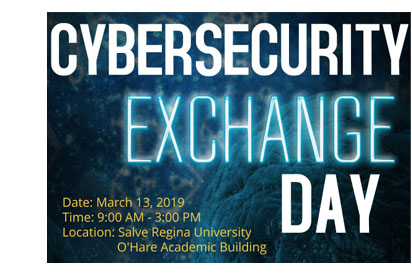
|
||||||
 |
THIS ISSUE'S HEADLINES RI Considers Petition to Add Opioid Dependency as a Qualifying Condition for Medical Marijuana Large Employers Should Get Prepared for Governor’s Proposed Medicaid Assessment "Big Tech and Big Tobacco: Is History Repeating Itself?" RI CONSIDERS PETITION TO ADD OPIOID DEPENDENCY AS A QUALIFYING CONDITION FOR MEDICAL MARIJUANA The Rhode Island Department of Health conducted a public hearing on February 6, 2019 to consider the possibility of using medical marijuana to treat opioid dependency. On October 24, 2018, B&B Medical Marijuana Evaluation Center in Warwick, RI filed a petition to add opioid dependency  as a qualifying condition to the Rhode Island Medical Marijuana Program, pursuant to R.I. Gen Laws § 21-28.6-5. The petition provides, in relevant part, that the goal of implementing opioid dependency as a qualifying condition in the State’s medical marijuana program is to offer effective alternative treatment options for those suffering from chronic pain, and to reduce the number of opioid prescriptions and opioid-related deaths. If accepted, opioid dependency would be added to the State’s list of qualifying medical conditions which includes: cancer, glaucoma, HIV and AIDS, and Hepatitis C, among other chronic and debilitating diseases and medical conditions. as a qualifying condition to the Rhode Island Medical Marijuana Program, pursuant to R.I. Gen Laws § 21-28.6-5. The petition provides, in relevant part, that the goal of implementing opioid dependency as a qualifying condition in the State’s medical marijuana program is to offer effective alternative treatment options for those suffering from chronic pain, and to reduce the number of opioid prescriptions and opioid-related deaths. If accepted, opioid dependency would be added to the State’s list of qualifying medical conditions which includes: cancer, glaucoma, HIV and AIDS, and Hepatitis C, among other chronic and debilitating diseases and medical conditions.In the employment context, the reduction of opioid prescriptions is particularly important, as opioid medications pose both a health and safety risk in the workplace. The use of medical marijuana as a substitution for opioid prescriptions has the potential to benefit employers in two ways: • Effective pain management with reduced risks of long-term dependency • Cost reduction Empirical data supporting the use of cannabis as an effective therapy for chronic pain is robust; and unlike opioids, which are highly addictive, medical cannabis is perceived as less risky than opiates with respect to dependency and mortality. Only time will tell whether Rhode Island will join the growing number of states who are successfully combatting the opioid epidemic through passing opioid dependency as a qualifying condition for medical marijuana. Following the Rhode Island Department of Health’s review of the public comments and associated medical literature on this issue, Dr. Nicole Alexander-Scott, the Director of the R.I. Department of Health, will issue a decision on B&B’s petition. The decision must be rendered within 180 days of the Department of Health’s receipt of the petition and is expected sometime before mid-April. For a deeper dive into the latest research on medical marijuana as a solution to the opioid crisis, PLDO Partner Benjamin L. Rackliffe, a leading authority on licensing, compliance and regulatory law in the cannabis industry, and Attorney Meagan L. Thomson have co-authored an advisory, RI Considers Cannabis as a Solution to Opioid Dependency. For further information, call Attorney Rackliffe and Thomson at 401-824-5100 or email brackliffe@pldolaw.com or mthomson@pldolaw.com. [back to top] LARGE EMPLOYERS SHOULD GET PREPARED FOR GOVERNOR’S PROPOSED MEDICAID ASSESSMENT As part of Governor Gina Raimondo’s Fiscal-Year 2020 budget for Rhode Island (H-5151), the Governor is proposing a new tax that will be assessed against large employers for each employee who is a Medicaid beneficiary. The tax would only apply to employers who have more than 300 employees. The law is loosely modeled on a Massachusetts law that applies the tax on a much broader swath of employers.  For each employee who is a Medicaid beneficiary, the state will assess a 10% tax on that employee’s salary, up to a maximum annual assessment of $1,500 per employee. Interestingly, different employers who employ the same employee can both be assessed if that employee is a Medicaid beneficiary. For each employee who is a Medicaid beneficiary, the state will assess a 10% tax on that employee’s salary, up to a maximum annual assessment of $1,500 per employee. Interestingly, different employers who employ the same employee can both be assessed if that employee is a Medicaid beneficiary.The proposed legislation implicates several different areas of law and large employers should start considering those implications before it passes. First, large employers may be in for a surprise when they get the assessment from the Department of Revenue. That’s because employers will not necessarily know before the assessment which employees are Medicaid beneficiaries. Large employers should consider proactively inquiring with the State as to how many of their employees are Medicaid beneficiaries. The State can currently provide an employer with the number of its employees that are Medicaid beneficiaries. Alternatively, under the proposed law, large employers can additionally request the name of their employees who are Medicaid beneficiaries. Having this additional information, however, brings new concerns. For example, does the employer have sufficient data security in place to protect this sensitive information? Further, could any future actions against the identified employee be construed as “retaliation” for causing the large employer the new tax? Those are just a few of the challenges that may face large employers if this proposal goes forward. For more information on this issue or other business matters, please contact Attorney Joshua J. Butera at 401-824-5100 or email jbutera@pldolaw.com. [back to top] "BIG TECH AND BIG TOBACCO: IS HISTORY REPEATING ITSELF?"  Cybersecurity is a priority for business owners. Protecting data and our privacy rights are part of this vast area of concern in the 21st century. On Wednesday, March 13, 2019, PLDO Partner Brian Lamoureux will explore the question, "Big Tech and Big Tobacco: Is History Repeating Itself?" at Rhode Island Cybersecurity Exchange Day, sponsored by Salve Regina University’s Pell Center and the Ocean State Higher Education Economic Development and Administrative Network (OSHEAN). The free event will be held from 9:00 a.m. to 3:00 p.m. at the University’s O’Hare Academic Building. Cybersecurity is a priority for business owners. Protecting data and our privacy rights are part of this vast area of concern in the 21st century. On Wednesday, March 13, 2019, PLDO Partner Brian Lamoureux will explore the question, "Big Tech and Big Tobacco: Is History Repeating Itself?" at Rhode Island Cybersecurity Exchange Day, sponsored by Salve Regina University’s Pell Center and the Ocean State Higher Education Economic Development and Administrative Network (OSHEAN). The free event will be held from 9:00 a.m. to 3:00 p.m. at the University’s O’Hare Academic Building. "There is little doubt that we have become more addicted to our electronic devices. Our dependency on social and digital media has been found to cause unhealthy consequences, including depression and social anxiety," said Attorney Lamoureux. "Are smartphones and privacy violations the new smoking? Is Big Tech anything like Big Tobacco, but in sleeker packaging and with more subtle risks? These are the questions we must all think about as we use these devices more and more, all while giving our data for free to companies who do not have our best interests at heart.” Attorney Lamoureux’s remarks will explore some of the distinct parallels in the business models and marketing efforts between the "big tech" companies, like Facebook and Google, compared to the heyday of the tobacco industry and the resultant social impact. His presentation is scheduled from 1:05 p.m. to 1:35 p.m. For further information and to register, visit RI Cybersecurity Exchange Day. To contact Attorney Lamoureux on cyber law issues or other business and employment matters, please call 401-824-5100 or email bjl@pldolaw.com. [back to top] |
 |
||||
Pannone Lopes Devereaux & O’Gara LLC |
||||||
 |
||||||